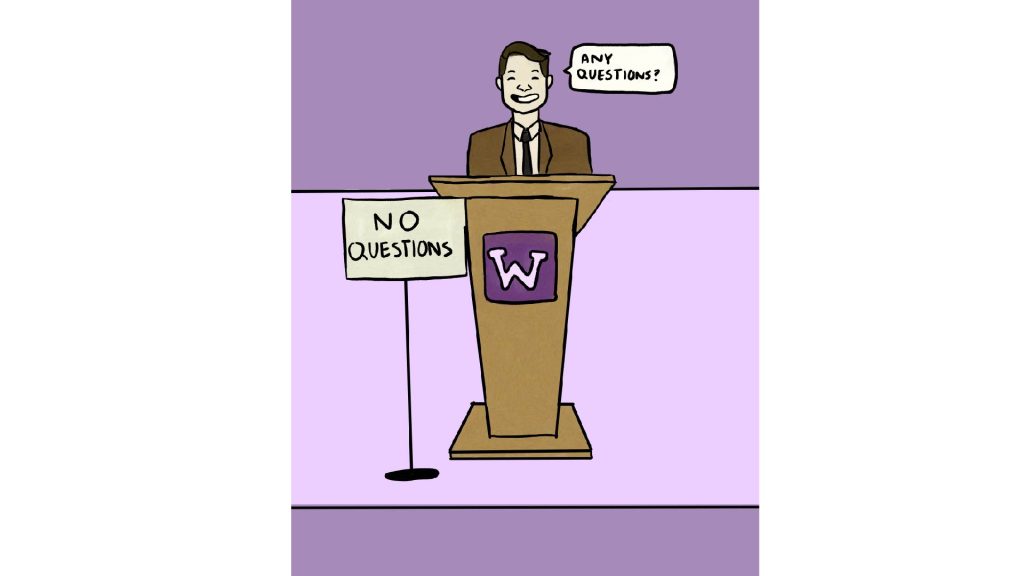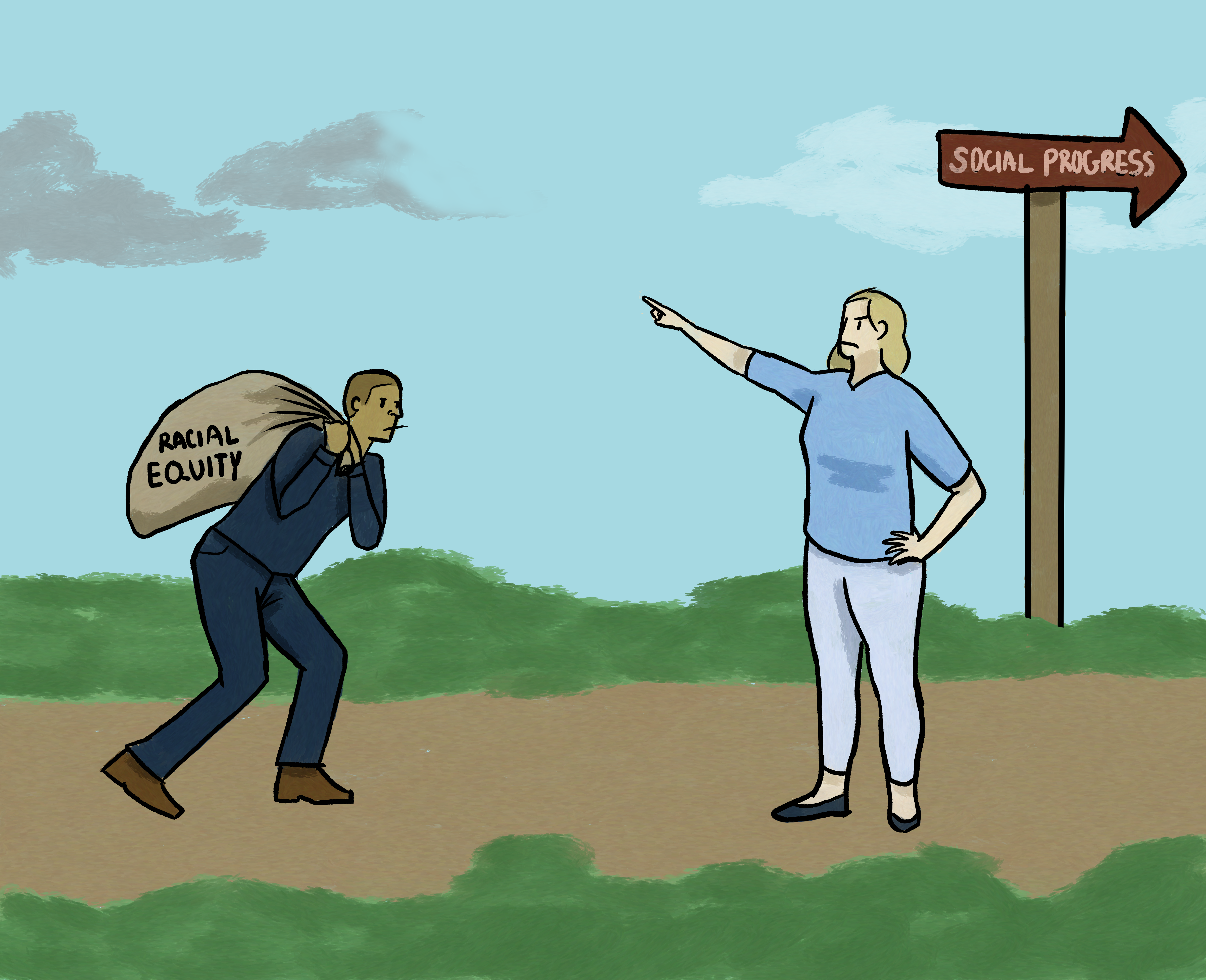OPINION: Abolition requires community involvement and community building
The Chancellor’s Office organized a Decriminalize UWT Town Hall. But how the university is doing on this issue is still unclear.
On Feb. 9, UWT Chancellor Dr. Sheila Edwards Lang hosted a town hall to discuss the recommendations developed by the Decriminalize UW Tacoma Task Force in response to a community-driven petition calling to decriminalize UWT.
The five demands of the petition per the Town Hall were : UWT must stop using Tacoma Police Department (TPD) to respond to welfare checks; UWT must stop using TPD for security at campus events; a different armed law enforcement agency must not be used for security at campus events; UWT must publicly commit to not hiring police officers with disciplinary records for UWT security; and UWT must publicly commit to not inviting ICE or Border Patrol to campus for any reason
Community involvement was limited however both due to a lack of online resources about the campaign and the university choosing to close the comments section of the live stream.
Just writing an opinion piece on the issue is difficult because of what seems to be a lack of blog posts, news articles and official communications on the Decriminalize UWT campaign.
Obtaining a critical view was made even more difficult when attendees were denied community involvement by the lack of a live comments section.
Perhaps the university was responding to their last Town Hall on the COVID-19 pandemic and in-person classes.
While those UWT representatives laughed at almost every concerning question raised (literally they laughed at just about every question), the comments section was a space that allowed attendees to create community, raise concerns about the material being presented and offer alternatives.
The comments section was a far more significant community dialogue than the unwelcoming COVID-19 Town Hall presenters and their seemingly curated questions list.
I can understand the university may have been wary of allowing trolls and cop loving racists to spam a comments section, but this problem is easily addressed through strict moderation. The benefit of community dialogue far outweighs the cost of moderating an online forum.
The university, given its emphasis on social responsibility, should be leading on this issue, not simply being reactive to a petition and ten years of the Black Lives Matter movement. They can lead not only by encouraging community involvement, discussion and debate but also by going farther than they have so far.
For instance, one demand from the petition is for UWT to publicly commit to not invite ICE or Border Patrol to campus for any reason. At the Town Hall, the Chancellor rebuffed this demand, citing students who want to pursue careers in law enforcement and saying the school will provide online opportunities for those interested in information sessions with such organizations.
Rather than placate students whose goal is to participate in state-sanctioned violence, why not lead on such a basic question by rejecting ICE and Border Patrol recruiters from campus? While we’re at it, why not go beyond the petition and ban the FBI, you know, the federal police, as well who recently got recruitment help from UWT’s Handshake system. This would be an actual example of leading on the project of police abolition and reimagining security.
Of course, such shifts would raise big questions about the role and goals of UWT’s criminal justice program.
But, like the practice of banning military recruiters from campuses as an anti-war statement, such actions would make it clear that UWT is opposed to state-sanctioned violence rather than complicit in it.
Unfortunately, an apparent lack of coverage of the decriminalize campaign makes it very difficult to analyze the town hall. Is the chancellor’s office actually addressing the issues? Or is the Decriminalize UWT Task Force simply a way for UWT to go through the motions of appearing to catch up with the times while maintaining a status quo?
The answers to these questions would be more apparent if the Chancellor’s office encouraged discussion and community building rather than silencing it.



